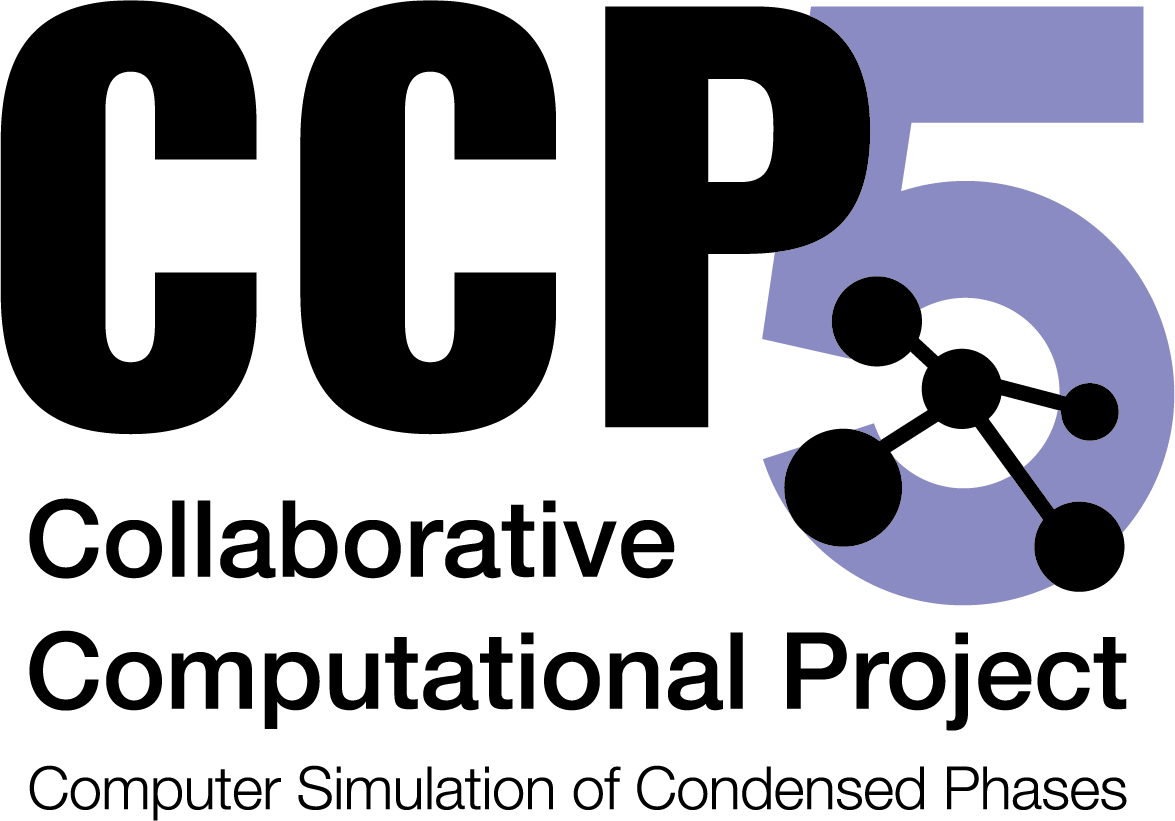We have four eligible candidates for two places in CCP5 Executive Committee – Prof. Grazia de Angelis, Edinburgh, Dr Livia Bartók-Pártay Warwick, Dr Micaela Matta, London and Dr Marco Molinari, Huddersfield. Links to personal pages and short details about each candidate can be found below Elections will take place between December 19, 2024 and January 20, 2025(23:59). All current members of CCP5 associated with a UK institution are eligible to vote(valid address on the ccp5 mailing list), by selecting two of their favourites candidates and emailing their names to alin-marin.elena@stfc.ac.uk
Candidates
- Prof Grazia de Angelis, University of Edinburgh
Grazia De Angelis is Chair of Thermodynamics of Materials and Processes at the School of Engineering, University of Edinburgh, where she directs the SusProM group. Previously, she was an Associate Professor in Chemical Engineering at the University of Bologna, Italy. Her work has enhanced the understanding of fluid diffusion and sorption behaviors in disordered glassy macromolecular systems through and her research has been applied effectively in diverse areas such as materials development, separation processes, and biomedical devices. Presently, she focuses on integrating various theoretical frameworks to boost the predictive accuracy of models for solid polymers and their mixtures, incorporating machine learning techniques.
She leads the Working Party on Thermodynamics and Transport Properties at The European Federation of Chemical Engineers (EFCE) and serves on the Steering Board of the Modelling and Simulation Research Area at the Henry Royce Institute. In 2024, she chaired the European Symposium on Applied Thermodynamics (ESAT) in Edinburgh, supported by CCP5+. She has led numerous research projects with funding from public institutions and industry.
Within the CCP5+ executive committee, she will actively promote collaboration among universities across the UK and internationally, including partnerships with other scientific organisations. She will disseminate CCP5+ activities through her extensive network and advocate for the computational and modelling community in both public and private sectors. She is committed to supporting the development of Early Career Researchers and underrepresented groups through dedicated training.
https://www.suspromgroup.eng.ed.ac.uk/home
https://www.eng.ed.ac.uk/about/people/prof-maria-grazia-de-angelis
https://www.linkedin.com/in/maria-grazia-de-angelis-a96909b
- Dr Livia Bartók-Pártay, University of Warwick
I am an Associate Professor at the University of Warwick, having joined as an Assistant Professor in 2019 following a RS Dorothy Hodgkin Fellowship (2014–2019) at the University of Cambridge and the University of Reading. My research focuses on the atomistic simulation of condensed phase materials, including interfaces and phase transitions. I am also actively involved in method development, particularly for sampling potential energy surfaces and structure prediction, and has a strong interest in improving interatomic potential models.
I am actively engaged in the computational modelling community, leading the “Statistics and Configuration Sampling” working group within Psi-k and serving as a member of the Materials Chemistry Consortium. I have been involved in organising several conferences, including coordinating the Computational Molecular Science Conference recently held at Warwick. As Deputy Director of the Modelling of Heterogeneous Systems CDT at Warwick and a lecturer at the CCP5 Summer School since 2021, where I deliver a lecture on advanced free energy methods, I am committed to training the next generation of computational scientists.
I would aim to support CCP5 in the continued development and visibility of statistical sampling approaches within the UK. I am particularly keen to contribute to training programs, fostering knowledge exchange, and promoting an inclusive and collaborative culture. I believe we can further celebrate the community’s achievements and explore opportunities to create resources that inspire and broaden engagement with computational science, both within and beyond our field.
https://warwick.ac.uk/fac/sci/chemistry/staff/liviabartokpartay
- Dr Micaela Matta, King’s College London
Micaela Matta is a Lecturer in Computational Materials Chemistry at King’s College London since 2022. Previously, she was a Marie Curie individual fellow and a Newton International fellow at the University of Liverpool. As a core developer of the python library MDAnalysis, she has been developing training materials and delivering workshops across the UK and online, often in collaboration with CCP5, CCPBioSim, and the Thomas Young Centre.
Micaela has been involved in CCP5 activities since moving to the UK in 2019; firstly as a participant at CMS conferences, then as a lecturer at the CCP5 summer school. Her group members continue to benefit from CCP5 training and studentships. If elected to the CCP5 executive committee, Micaela aims to contribute her expertise in community building, software development best practices and python-based tools to support the CCP5 community in continuing to offer professional development and networking opportunities for early career researchers.
https://www.kcl.ac.uk/people/micaela-matta
- Dr Marco Molinari, University of Huddersfield
My name is Marco Molinari, and I am a Reader in computational chemistry and materials science at the University of Huddersfield. My interest resides in surface science focussing on modelling surface speciation and interfacial processes using both classical and ab initio techniques. Huddersfield gave me the opportunity to become an independent researcher back in 2016. As I progressed, I became a CCP5 committee member between 2017 and 2020, where I actively contributed to all aspect of the organization, funding allocation and CCP5 renewal. Another important contribution was the organization of the CCP5 Annual General Meeting for the 40th anniversary of CCP5 in Huddersfield, one of the most attended AGM. With my experience in the governance of CCP5, I strongly believe I can make an informed contribution to the work of the committee. During the next mandate, I will strongly support strategies that will allow research developments for younger researchers at the PhD and Master level. I also sit in the Committee for the Materials Chemistry Consortium, and as such I will support the strengthening of joint collaborations and closer ties. As many of us are members of the two consortia, joint CCP5-MCC annual events will see new research ideas, collaborations and opportunities amongst the diverse communities represented by CCP5 and the MCC, including workshops to accelerate the uptake of machine learning and other cutting-edge techniques. I would be honoured to serve on the CCP5 committee and give stronger voice to developments driven by members. Thank you for your consideration.
